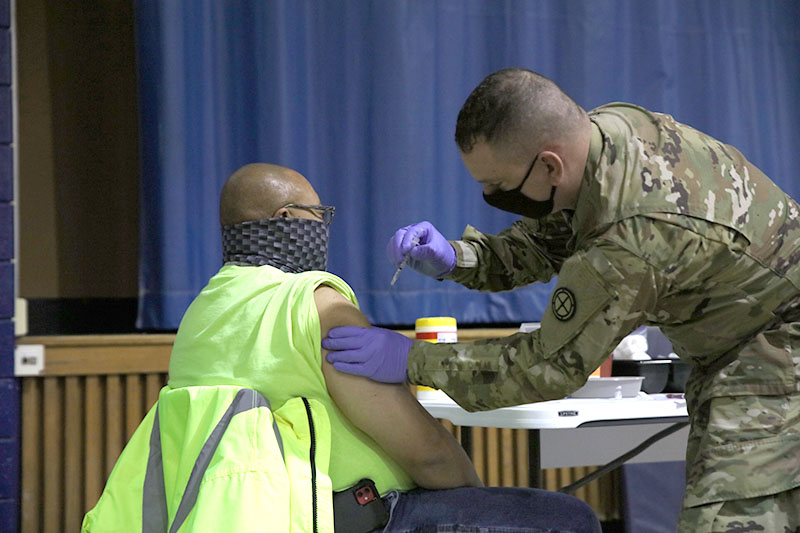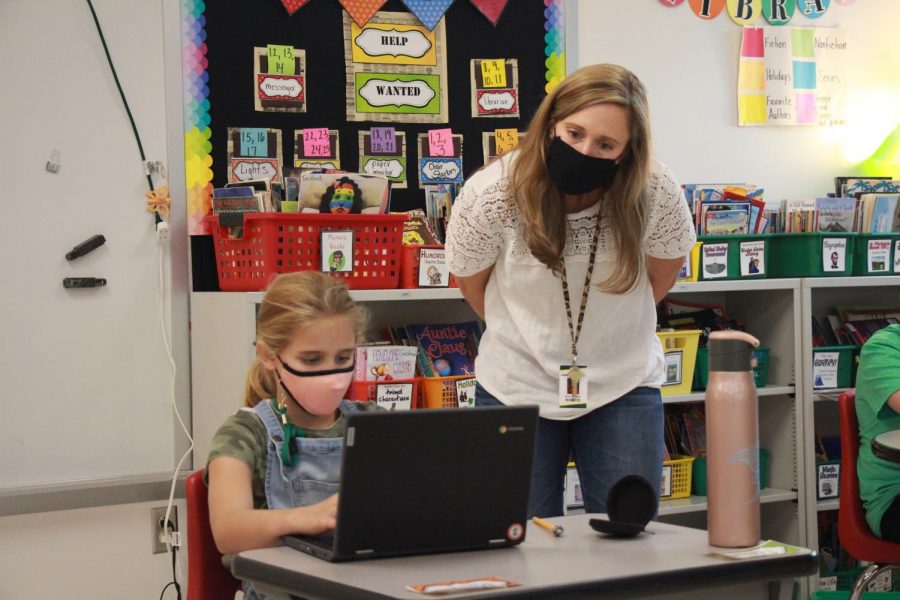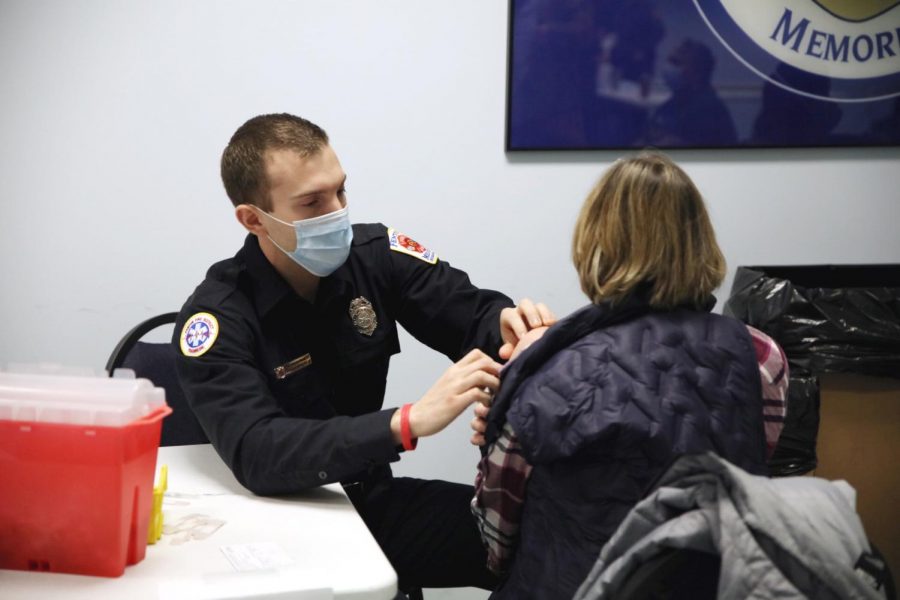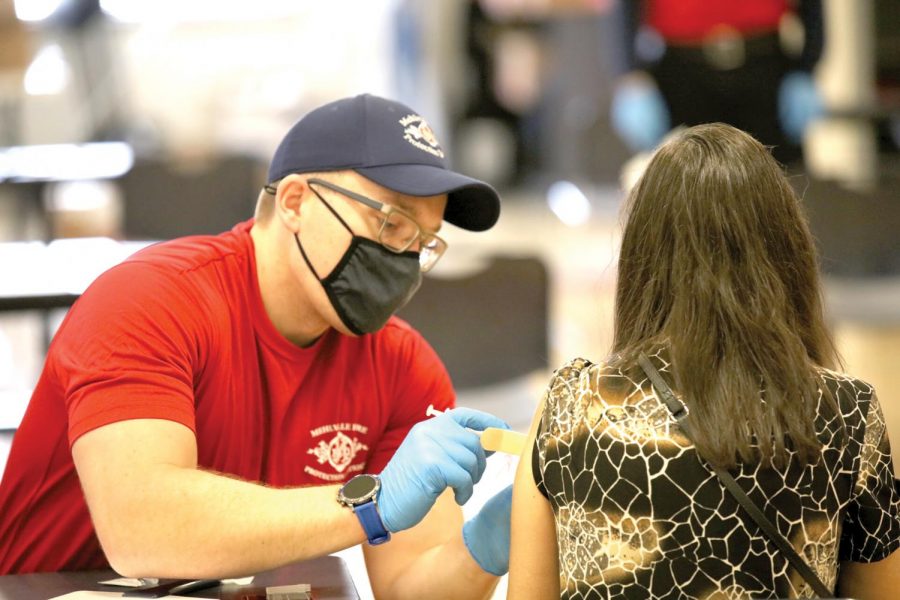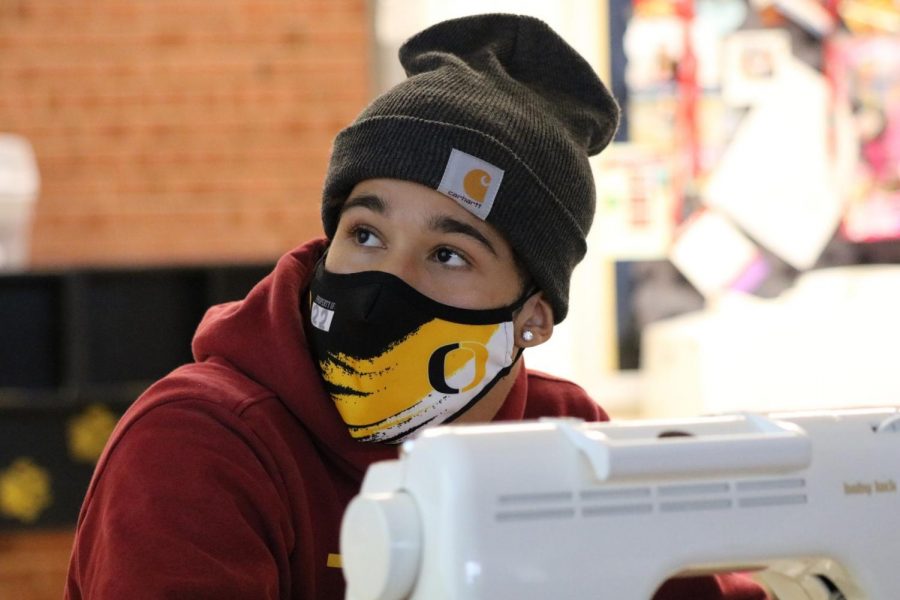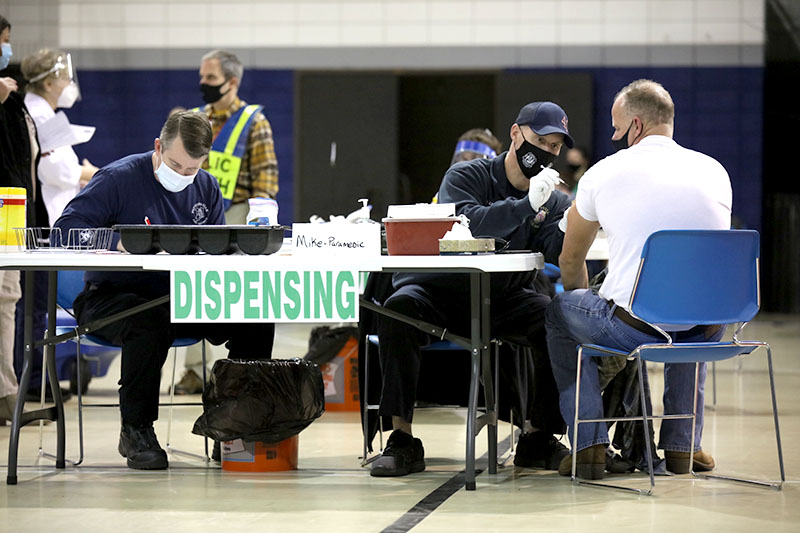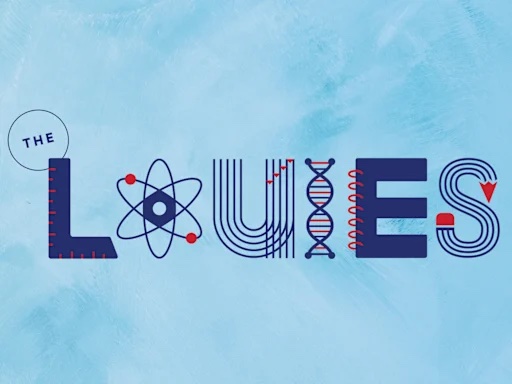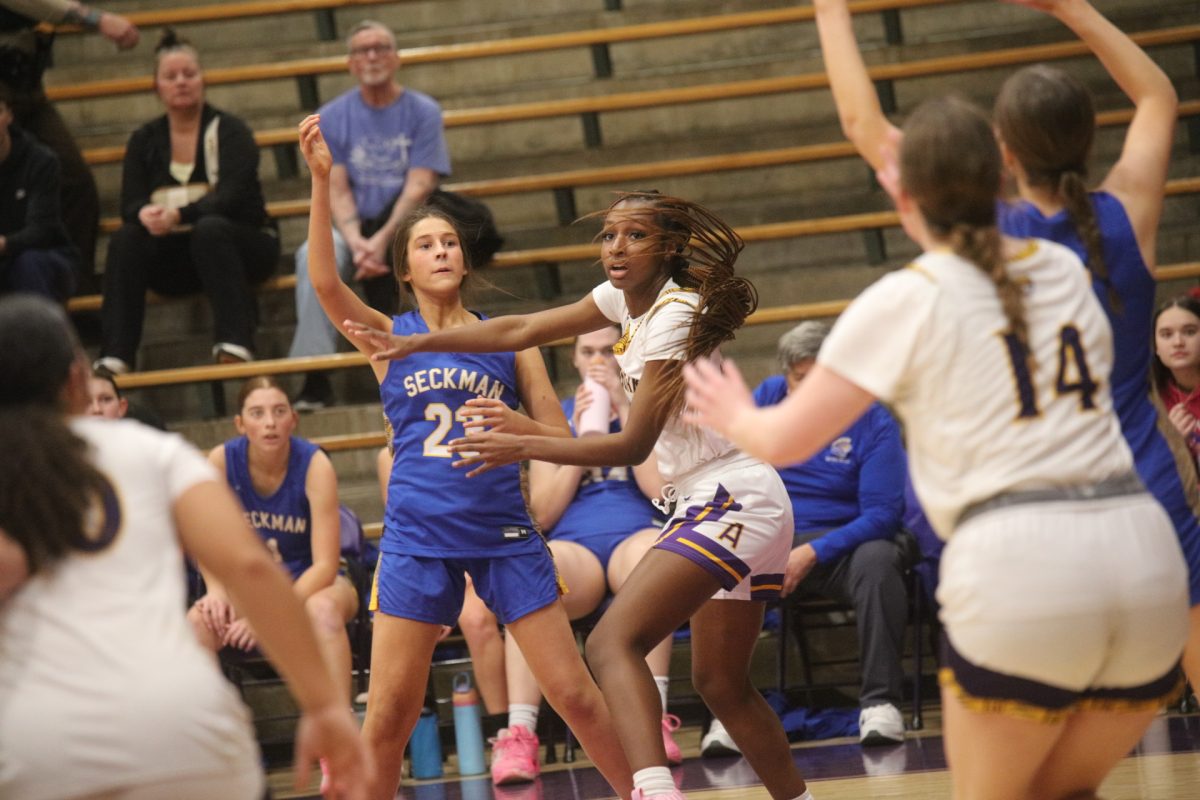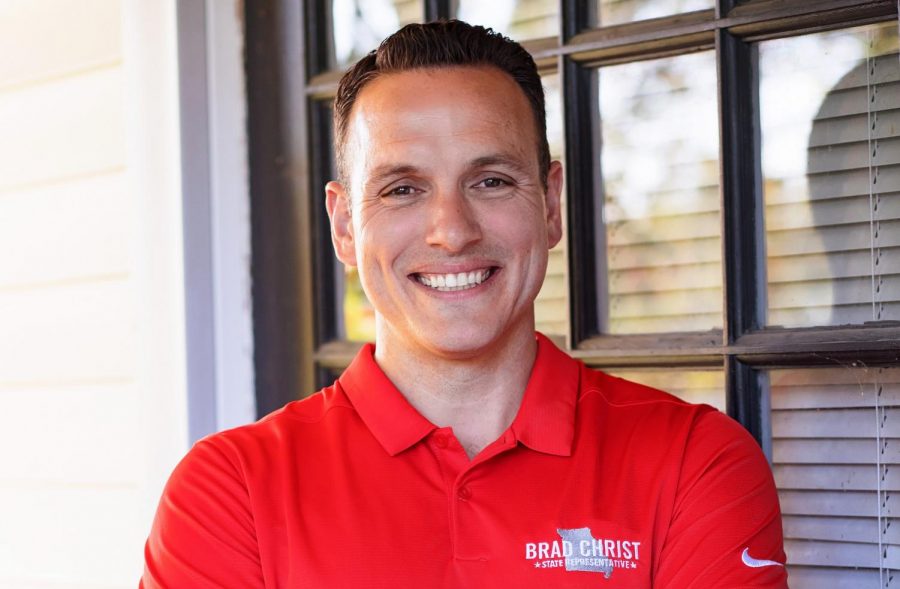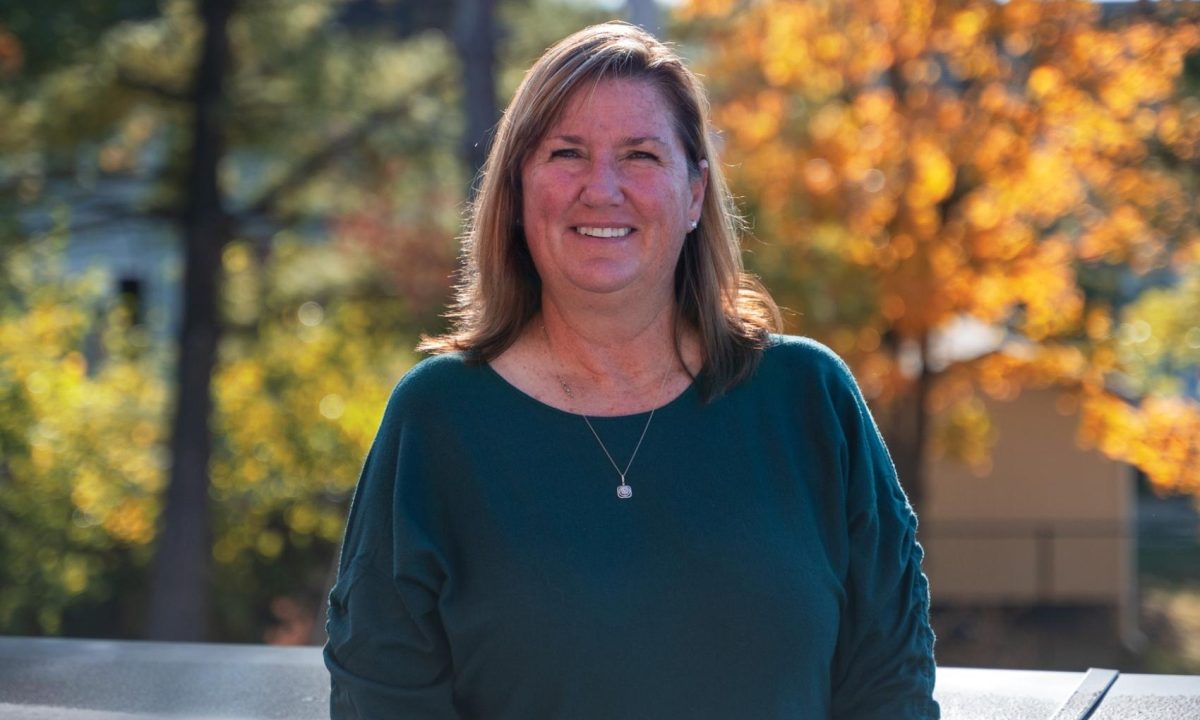Doctors throughout the country have been answering questions about COVID-19 vaccines, which range from ones on everyone’s mind such as safety to countering misinformation that spreads quickly online that has no basis in fact.
Here are a few questions answered by Washington University/BJC Healthcare infectious disease specialist Dr. Hilary Babcock and other doctors.
Was the vaccine rushed?
In a virtual town hall that BJC held over Facebook Live, Babcock said that the idea that the vaccines were rushed through approval probably stems from the name of the federal government program that funded some of them, Operation Warp Speed.
“My least favorite thing about the vaccines is the name ‘Operation Warp Speed,’” Babcock said. “I really feel like this should be named ‘Operation Warp Safety’ or ‘Operation As Fast As Possible Doing Everything Right’ — all of these would be better. It’s a global pandemic, we certainly want a vaccine safe and effective and available as soon as possible, but it didn’t mean that any corners were cut.”
The COVID-19 virus is a coronavirus, and that family of viruses has been seen in past pandemics like SARS and MERS. Those never reached the global threat of COVID-19 because those viruses didn’t spread as quickly, so the vaccines were shelved. But the baseline research was applicable to COVID-19 too. In the same vein, years of past research developing messenger RNA or mRNA as a successful pathway in a vaccine had already been done, which allowed that to be used for the Pfizer and Moderna vaccines.
Another factor was the federal influx of money from Operation Warp Speed: Pharmaceutical companies typically would not start production while trials were still going on, but when they were freed from the financial fallout, the companies ramped up production earlier. When the companies met all federal approvals, they were able to immediately get vaccines out.
More than 70,000 people combined were enrolled in Pfizer and Moderna’s studies, and millions of people have since safely received the vaccine. The vaccines were so effective against the coronavirus in trials — both above 94 percent — that it also sped up results because the vaccines were obviously effective, Babcock noted.
“The people who were vaccinated stopped getting COVID while the people who got the placebo kept getting COVID at a pretty rapid rate, so we could see the difference and the impact the vaccine made pretty quickly,” Babcock said. “So there were actually a lot of good reasons that it could be done quickly and still be done safely. … They still were held to the highest standards.”
Will I get COVID-19 from the vaccine?
None of the vaccines currently approved have a live virus, so you cannot get the virus from them. The Pfizer and Moderna vaccines use one mRNA protein to prompt an immune reaction that provides antibodies against COVID-19. The Johnson & Johnson or Janssen shot uses “viral vector” technology through a harmless, inactivated cold virus to create antibodies.
Is one vaccine better than the others?
All three vaccines are highly effective against severe cases of COVID-19 and hospitalizations. Federal officials set a goal for a vaccine at least 50-percent effective, and the Pfizer vaccine is 95 percent, Moderna is 94 percent and Janssen is 85 percent effective against severe disease. The one-dose Janssen vaccine, however, was studied later and worldwide, where variants had already taken hold. It was highly effective against those new strains. The Pfizer and Moderna vaccines appear to be effective against variants, but it’s not yet known how they compare to Janssen.
An advantage of Janssen could be quicker protection — since it only requires one shot, full protection comes in two weeks, whereas the other vaccines are fully protective two weeks after the second dose.
Should I get the shot if I’ve had COVID?
Anyone who has already had COVID has natural protection through antibodies for a certain period of time, although it’s not yet known how long. You can get vaccinated as soon as you’re out of isolation.
“The vaccine provides great protection and actually may provide somewhat better protection than natural protection, depending on how sick you were and what your immune response was,” said Babcock, who had COVID herself a year ago.
Can I still get COVID if I get the shot?
“What the studies have shown is that your risk of getting COVID has decreased 95 percent by having the vaccine, so it’s a very protective vaccine,” Babcock said, specifically referring to Pfizer and Moderna. “No vaccine is 100 percent, so it’s still possible although much much much less likely. Your chances of getting very sick or ending up in the hospital is also markedly reduced.”
Does the vaccine alter your DNA?
This made its way around social media, but it is a myth, Duke University Health Systems infectious disease specialist Dr. Cameron Wolfe said. The way the vaccines are set up, they cannot merge into your DNA or change your DNA.
The mRNA proteins or harmless cold virus that triggers your body’s immune response to COVID-19 “don’t get folded into your own genetic makeup,” Wolfe said. “So there’s no biologic plausibility at all for this to alter your genetics, it doesn’t work that way.”
Will I have any long-term side effects?
Wolfe said, “The vaccines that we know of don’t have long-term side effects.”
The companies have to provide two months’ worth of side effect data to the U.S. Food and Drug Administration and are still tracking months later. There are no major side effects, and Wolfe said that if something was so severe as to cause a long-term side effect, it would show up in the data within that two-month window.
“One of the things that people need to be clear about is there’s a big difference between understanding how long it lasts, which we may not know, and having any reason to fear that there’s late side effects,” said Wolfe. “We don’t have any reason to think that there’s late-term side effects.”
Will the vaccine cause infertility?
Dr. Geeta Swamy of Duke University Health Systems said, “This is absolutely not true. There is no scientific plausibility to how this would happen. The theory that’s been posed by some in this misinformation campaign against the vaccines is that the vaccine causes your body to generate this protein called spike protein” that is similar to the proteins in the placenta. But, Swamy said, “The proteins are very, very different, it wouldn’t work that way.”
If this was true, there would be severe complications in pregnant women who get COVID-19, which has not been seen.



